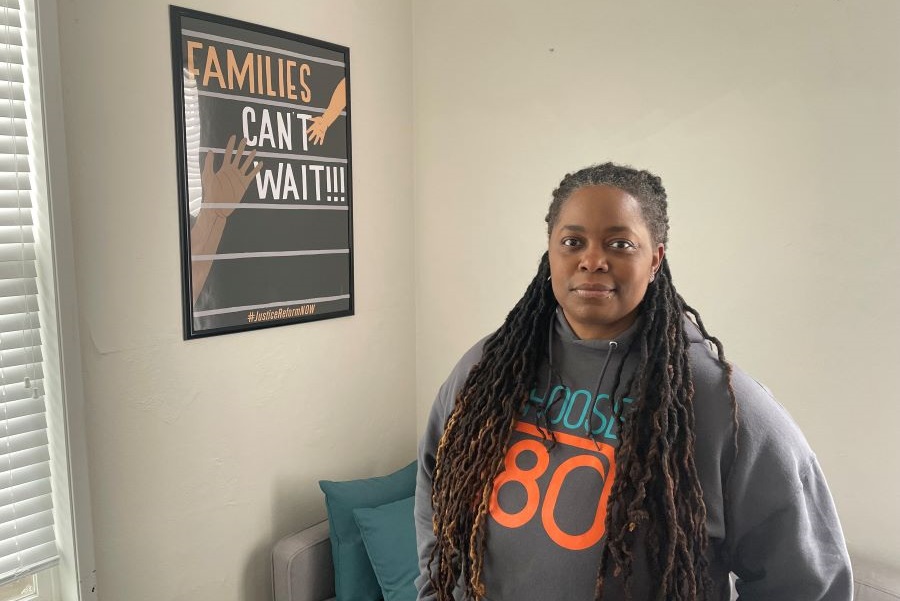Black Community Building Collective: CHOOSE 180
The Black Community Building Collective is a coalition of 15 Black-led organizations brought together by United Way of King County to build relationships, form strategies and implement those strategies with United Way funding. United Way thanks Brighton Jones for its sponsorship of the Black Community Building Collective.
United Way features monthly spotlights of Collective members. This month, we’re spotlighting CHOOSE 180, a Burien-based organization that transforms young people’s lives by partnering them with institutional leaders and empowering them with choices to change. We recently sat down with Tascha R. Johnson, CHOOSE 180 interim executive director, to learn more. Johnson succeeds former CHOOSE 180 executive director Sean Goode, a United Way board member who is now head of impact and learning at the Seattle Foundation.
United Way of King County: What are the origins of CHOOSE 180?
Tascha Johnson: The origin of CHOOSE 180, the culmination of it seems almost too simplistic. In 2011, the [King County prosecuting attorney] Dan Satterberg and [community leader and CHOOSE 180 founder] Doug Wheeler were interested in finding an alternative to incarceration, and they realized there were no solutions out there that were widely used. Even diversion wasn’t commonly used. So, Dan Satterberg and Doug Wheeler came together to found what was called Youth 180. That was the first iteration.
Fast forward to a few years: It had been successful to that point, and they realized they were ready to make it full time, expand the number of cases that were being diverted to the program. They brought on [former director] Sean Goode.
And Sean worked with them to change the name to CHOOSE 180, which indicates the ability to make a 180 by choice.
United Way of King County: What are the communities served by CHOOSE 180?
Tascha Johnson: The communities served by CHOOSE 180 have expanded.
Tascha Johnson (continued): When we first began, it was a diversion program, so the referrals were coming from the prosecuting attorney’s office in King County and the Seattle City Attorney’s Office. In 2019, we began to offer aftercare services to our youth and young adults because they needed some longer-term care. In that same year, we began the school-based diversion program because we had requests from the community for diversion options from suspensions and expulsions in schools.
From there, we’ve continued to grow. We have our program CHOOSE Freedom, which works with youth and young adults who have been impacted by violence and gun violence in the communities. We go into juvenile facilities and work with youth and young adults there through a 14-module program. The program was built on the feedback from our young people of what it is they need or would like to have in a program that would address these very specific needs they are facing in the communities.
We also have a counseling program, advocacy program and a summer youth entrepreneurship program. And so many young people who go through our programs refer to friends, relatives and families, so we have community referrals.
United Way of King County: How many youths do you serve each year? What are their age ranges?
Tascha Johnson: That number has varied: Before COVID, the number was up to 600 youth each year. During COVID when the world was shut down, we were still seeing up to 300 youth each year, and we’ve maintained that for the last two years. This year, however, we’re already seeing an uptick in the number of youths, so we are anticipating seeing 400-500 youth again.
And on some levels, you don’t want to see the uptick because that means that youth and young adults are being charged with cases or it means that they are being recommended for suspensions or expulsions in schools. If the annual number is less, it means the rest of the systems are working. We serve youth and young adults between the ages of 13-24.
United Way of King County: What are some impacts CHOOSE 180 has made in the community?
Tascha Johnson: The way I like to think about CHOOSE 180 is the three pillars we affect: the individual, the community and systems. Whenever we develop a program, we build it from the perspective of those three pillars. How will this impact the youth and young adults? How will this impact the communities, which include the places they live, the schools, the detention centers, and also how can we affect the systems.
With regard to the suspensions and expulsions, we’ve noticed that they have gone down in the districts we work in—the Highline School District and five schools in Seattle Public Schools. We also have more peer referrals than we have from the prosecuting attorney’s office. Youth and young adults want community mentors, they are looking for resources in the community. And when they find a program that does believe in them, a program that shows consistency to be there on a regular basis and when needed most, youth and young adults gravitate toward that.
Youth and young adults want community mentors, they are looking for resources in the community. And when they find a program that does believe in them, a program that shows consistency to be there on a regular basis and when needed most, youth and young adults gravitate toward that.
CHOOSE 180 interim director Tascha Johnson
United Way of King County: What are some upcoming projects, programs or events at CHOOSE 180?
Tascha Johnson: We will have an event from March 31-April 9 called Tabling and Q&A with “Pipeline,” which is a play addressing the school to prison pipeline. We have a Volunteer Appreciation Day on April 12. We have a Lunch and Learn for our community of support—our donors—on April 26. We have a Give Big Event in May. And we have an Art Drive on May 20 through United Way of King County—to collect donations for our art therapy counselor who is in more need of art supplies.


Comments